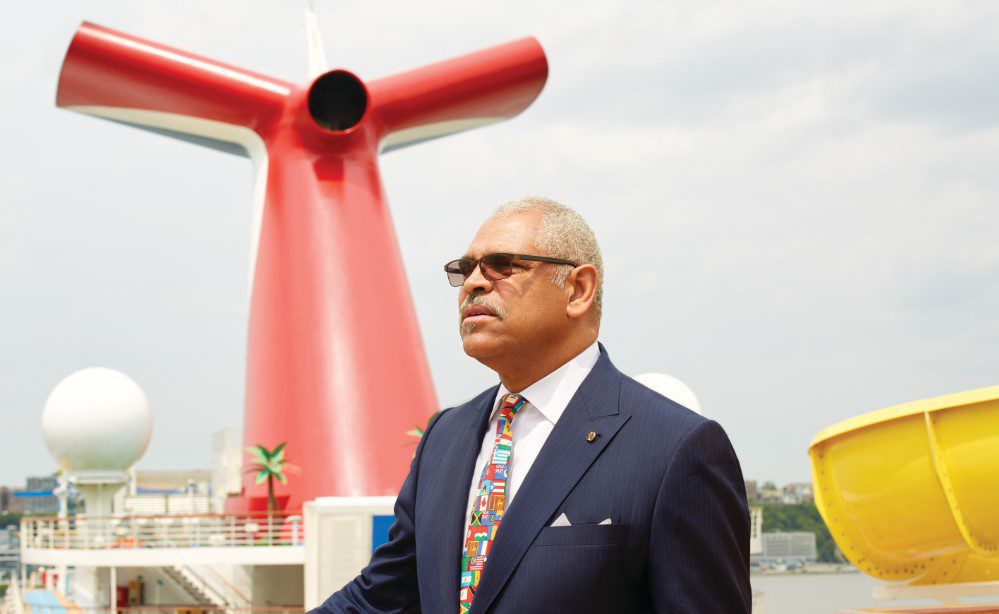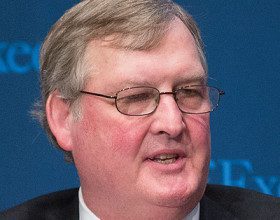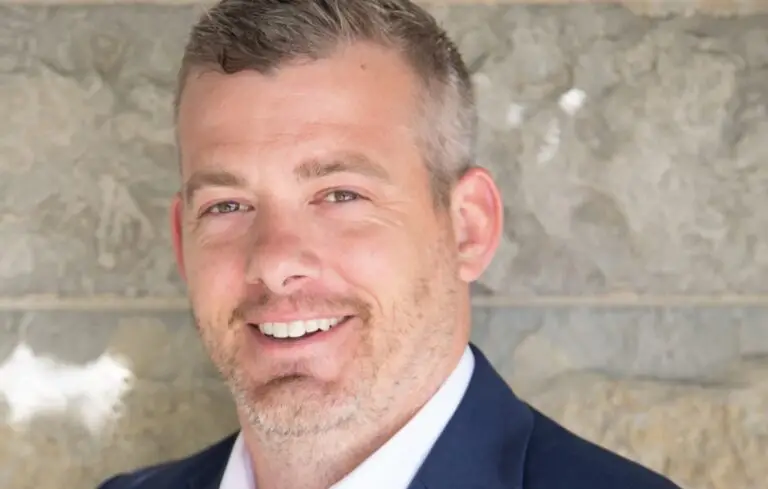
Just 18 months ago, it was all smooth sailing for Miami-based Carnival Corporation & plc. Its share price at a 10-year high, the $18.8 billion company was logging the highest profits of its 45-year history. But at a time when consumer-facing companies are just a bad quarter or two away from a stock drop, success stories can go sideways fast—even for a celebrated CEO like Arnold Donald.
Credited with steering Carnival’s revival over a six-year tenure, Donald now finds himself in the position of having to do it all over again. Weighed down by softening demand for cruises in the European market and a U.S. policy change that abruptly put a stop to its cruises to Cuba, Carnival has lowered its guidance for the remainder of 2019 and, at press time, its shares were lingering around $48, down from a high of $71 in January.
That’s not all. In June, Donald found himself in court with Carnival pleading guilty to charges that the company had violated terms of a probation from a 2016 pollution conviction by continuing to dump “gray water” in prohibited places such as Alaska’s Glacier Bay National Park. The transgressions proved costly, dealing Carnival both a reputational hit and a $20 million fine.
If there’s a silver lining here, perhaps it’s this: It isn’t the first time headwinds have taken the company off course, and it’s come back stronger each time. In fact, when Donald first took Carnival’s helm in July of 2013, two seismic events had just rocked the company.
Earlier in the year, a power outage on one of its ships triggered a breakdown in the sanitation system, leaving 4,200 passengers dealing with raw sewage and fecal matter. The headlines were not kind. Worse yet, that major mishap followed an even more dire disaster the year prior, when one of its ships capsized off the coast of Italy, killing 32 people. Together, the two incidents shook consumer confidence and sent both bookings and share prices plummeting.
Donald, who had served on Carnival’s board for 12 years prior to the major mishaps, was brought in to steer it back to profitability. Although he had never run a cruise line, Donald knew the company’s fundamentals and felt he could get the business on track. He was right. Five years into his tenure, its market cap had jumped from $27 billion to $44 billion and return on invested capital had doubled.
One of the keys to that turnaround was a listening tour he undertook upon taking the job. Most CEOs who assume a new leadership position move quickly to replace senior executives with their own people. Instead, Donald made it clear he wanted to listen to both the current leadership—some of whom had wanted his job—and to people throughout the organization. “I learned some very basic things,” he says. “If you listen carefully to the world, it will reveal itself to you. If you listen carefully to your guests, they will tell you what you need to do to exceed their expectations.”
Today, Carnival operates nine brand lines and its 107 cruise vessels (one more than the surface fleet of the Russian navy) represent one of the largest cruise fleets in the world. Nearly half of all global cruise guests will sail on a Carnival Corporation brand in 2019. Micky Arison, whose father, Ted, co-founded the company in 1972 with one ship, remains Carnival’s chairman.
While Donald acknowledges that Carnival is once again navigating stormy seas, he argues that its overall outlook remains robust “A confluence of circumstances did cause us to lower our annual guidance,” he says, “starting with the unforeseen change in U.S. policy that halted our cruises to Cuba. We also had one of our newest ships that had to come offline for some unscheduled repairs, and we are seeing some softness in the European sector. We continue to pursue recovery through adjustments to marketing and overall capacity among them. All this to say, the outlook for our company and our industry remains robust.”
Still, the industry as a whole also continues to grapple with the challenge of getting more vacationers on board with the cruise vacation concept. Carnival comprises roughly half of the $45 billion industry, but that industry is tiny compared with land-based vacations. All the cruise ship cabins in the world add up to less than 2 percent of all hotel rooms.
Struggle is nothing new for Donald. Growing up poor in New Orleans in the era of segregation, he was the youngest of five children in a family that welcomed a total of 27 foster children over the years.
Despite the fact that neither of his parents finished high school, he attended Minnesota’s Carleton College and graduated from Washington University in St. Louis and the University of Chicago Booth School of Business. His business career spans nearly four decades, with a variety of senior leadership positions in several industries, including 23 years at agri-chemical company Monsanto and chairman/CEO positions with Merisant, parent company of the Equal sweetener brand.
Affable and self-effacing (“I’m from New Orleans, I like people”), Donald is clearly a temperamental fit for the job: intensely interested in others, he loves to cultivate his reputation as a card counter at the blackjack table and for being an enthusiastic dancer.
During a recent visit with Chief Executive, he reflected on what he learned while fixing Carnival and how he’s coping with today’s headwinds. Excerpts, edited for length and clarity, follow.
What is the big lesson you’ve drawn from leading through Carnival’s comeback and its more recent ups and downs?
Listen, listen, listen. The key to most solutions is for everyone to clearly understand the problem and to have shared ownership of a clearly understood “what success looks like.”
You had no experience in the cruise industry when you came in to Carnival as CEO. What led you to take the job?
Having been on the board for 12 years, I got a surprise phone call from our lead director, but running the company never crossed my mind. I almost said no on the spot because I had basically retired. Micky Arison thought enough of me to ask me to consider it when a lot of people would’ve killed to have the job. Considering Micky could’ve hired anybody he wanted, I thought I’d at least have a conversation with him.
Through that conversation, I saw the platform and opportunity it represented. I also thought it would be a lot of fun and realized that I should’ve been begging for the job.
What kind of shape was the company in?
Both the company and the industry had languished a bit—share prices had been flat or declining for a few years. The core business was profitable. Even in tough times when fuel prices tripled, the company always made money. But most importantly, it was still a great value relative to the equivalent land-based vacation and was a tremendous experience for guests.
It’s just that there had been a series of perfect-storm-type events, some self-inflicted, some industry-wide that had led to mediocre or poor financial performance on a relative basis. And then, before I took over, we faced several disruptions that received widespread media attention that proved very negative for the industry.







